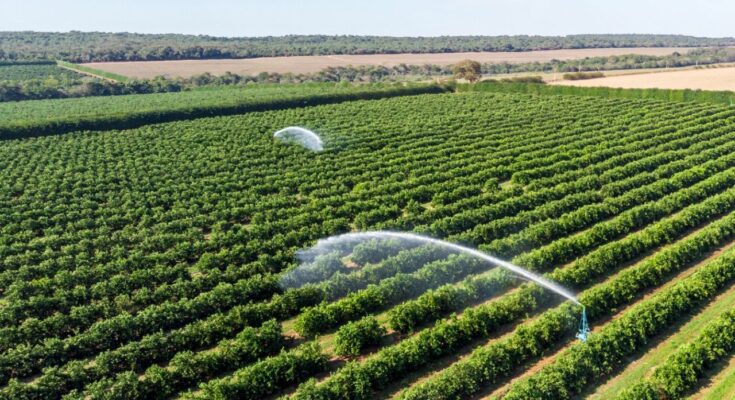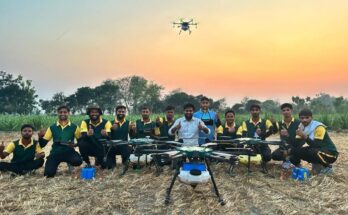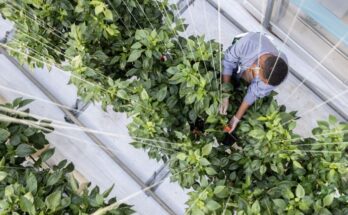Large farm management can be exhausting and expensive. The rising demand in food production has made managing large farms inevitable to feed the ever-growing global population. Bigger farm sizes could mean huge quantities of farm inputs, higher investments, large amounts of data, and greater possibilities of crop failure. Implementing smart farm management strategies can help to proactively optimise large farm operations and drive maximum returns for agribusiness.
Meeting the food production needs in a cost-effective way, the safe storage of large amounts of inputs and finished goods and analysing the huge quantities of data can be a herculean task for large farm owners. The implementation of climate-smart agriculture practices and IoT (Internet of Things)-based tools can make large farm management extremely efficient. With higher crop production potential, large farm owners can easily leverage huge investments and innovative technologies.
-
Trim expenses without sacrificing productivity
Input cost volatility can be a massive obstacle in agriculture management, especially for large-scale farms. The maintenance cost of big farms can also be a big challenge, considering the huge number of on-field tools and machinery. Farmers can ensure significant cost-savings by leveraging huge discounts on inputs. Buying fertilisers, seeds, chemicals, machinery, and other crop inputs in large volumes can enable farmers to negotiate prices.
The investment in machinery per crop acre for large farms is also quite less as compared to the smaller farms.
2. Make data-based decisions for greater yields
Getting detailed insights into the farm environment conditions can be extremely challenging while managing large farms. This has made it imperative for large farm owners to employ data-driven decision making for more predictable agricultural outcomes.
Data-driven agriculture can help large farm owners to maximise their yields at minimal costs. It can ensure the optimal use of farm inputs and also assist the large farm owners in practicing precision farming.
3. Eliminate middlemen to leverage maximum returns
When it comes to large farm management, there are huge food production risks with minimal monetary benefits for the farmers. Most of the times the middlemen pocket the bulk of the profits while farmers hardly get the deserved returns for their investment and efforts. This has made it imperative to weed out the intermediaries in order to offer farmers a better price for their produce. Large farm owners can contract directly with large processors to eliminate the role of middlemen and get higher crop prices. With such a contract, farmers are aware of the exact quantity and quality of crops they need to produce in a given period of time. This enables them to pre-schedule all of their farm management operations for greater efficiency.
4. Prevent production delays by maintaining optimum stock levels
The safe storage of huge quantities of crop produce and inputs is one of the major concerns with large farm management. Lesser visibility into the stock levels can introduce hurdles in maintaining adequate amounts of fertilisers, raw materials, and other inputs. This, in turn, can lead to delays or interruptions in the production process and affect the quality of crop outcomes.
Having an efficient inventory management system can help in maintaining optimum stock levels by analysing out-of-stock patterns. It can also provide effective solutions to minimise post-production losses with better control over finished goods inventory. This enhances large farm management efforts by ensuring lesser interruptions or additional costs.
5. Climate-resilient farming can help refine crop quality
The rising population and changing diets are driving up the demand for food production globally which makes managing large farms a profitable and viable option to generate greater yields. But food production is struggling to keep up as inadequate rainfalls, droughts, and many other climate events are disrupting crop quality.
Employing climate-smart agriculture practices can help address the concerns of food security and accelerating climate change. The use of next-gen sensors and weather stations can provide with vital farm data such as humidity, temperature, and moisture precipitation.
6. Monitor and manage farm operations remotely with IoT
Larger the field size, higher is the risk of pest infestations or crop diseases could seriously amplify. Labour shortages could also have a detrimental impact on the large farm management practices. Monitoring and managing the farm conditions of large-sized fields could take up a lot of the farmers’ time and efforts making it eminent for farmers to incorporate IoT-based farming to augment their farm activities remotely.
The use of agricultural robots, GPS-controlled tractors, and other IoT-based devices can expedite planting and harvesting operations for large fields. The use of drones and satellite imagery can make large-scale irrigation management a lot more efficient and precise. With remote monitoring, farmers can accurately keep track of all the field operations. This way, IoT-driven agriculture can eliminate critical farm issues and empower farmers to successfully manage large farms remotely.
Although large farm management is facing serious challenges globally, incorporating the above strategies could make a huge difference. FarmERP helps large farm owners to digitally monitor and manage complete farm production with its innovative agritech solutions.
(Santosh Shinde is the COO and co-founder of agritech company, FarmERP. Views expressed in the article are author’s own.)




